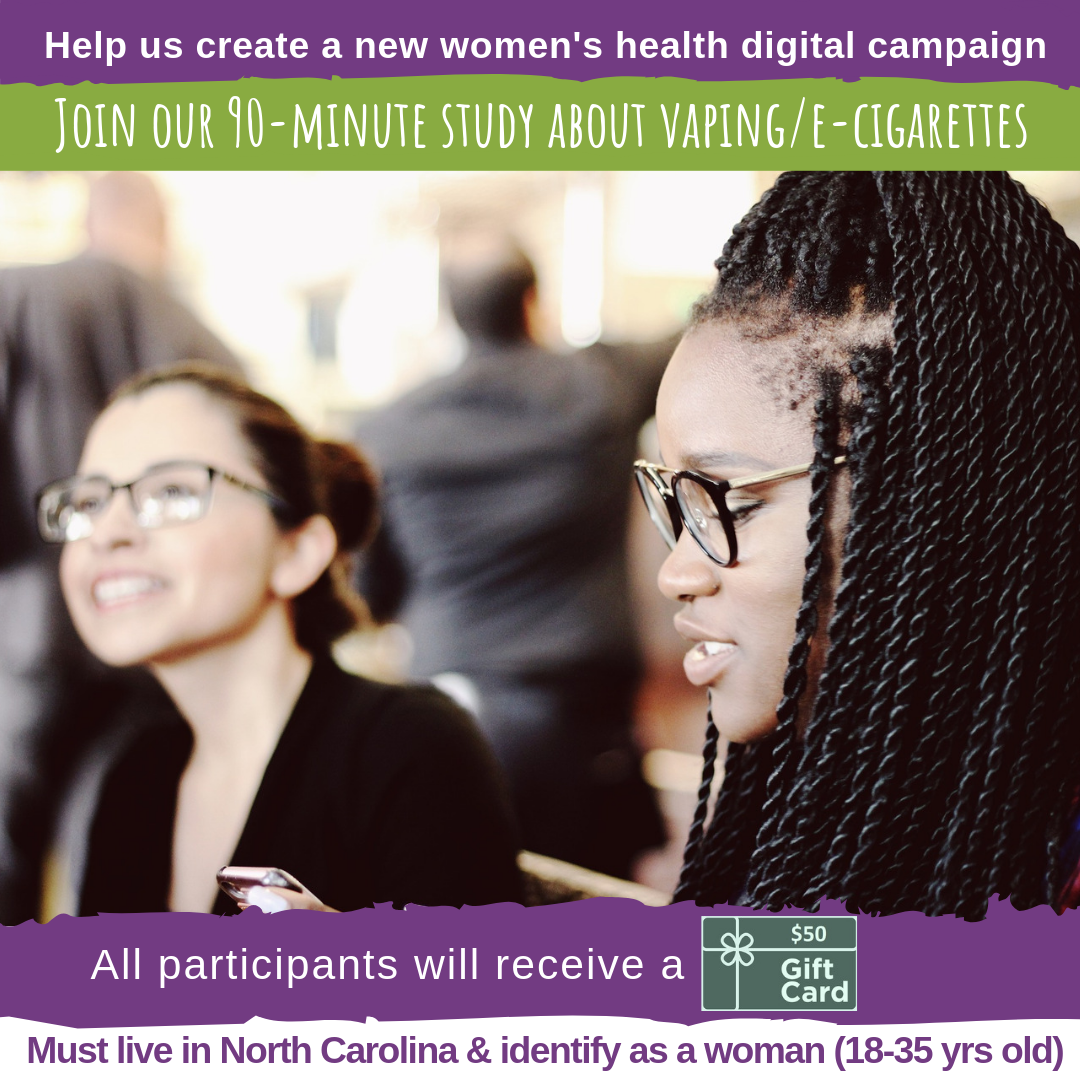 Are you a woman, 18-35 years old, living in North Carolina?
Are you a woman, 18-35 years old, living in North Carolina?
The UNC Center for Maternal & Infant Health would like to get your opinions about messages we have made about e-cigarettes and vaping. Your input will help us understand how women like you will react to the advertisements.
What is involved in this research study?
- You will take part in a focus group or individual interview that will take no more than 90 minutes.
- We will ask you what you know about e-cigarettes and what you think about the advertisements we show you.
- Privately, we will ask you some questions about you such as your age, ethnicity, education, whether you are pregnant and/or have kids, and whether you have ever used tobacco products.
- At the end of the focus group or interview, you will receive a $50 gift card.
- We will assign you a study ID number that will be used instead of your name to keep your responses confidential.
NOW SCHEDULING Online & In-Person Meeting Times:
- Thursday, March 21st – 12-1:30 pm
- Thursday, March 28th – 12-1:30 pm
- Tuesday, April 2nd – 7-8:30 pm
Interested in Participating? Please Contact: Jaimie Lea, MPH, IBCLC, UNC Center for Maternal and Infant Health
Call Jaimie with questions: (919) 843-7863
The primary investigator for this study is Erin K. McClain, MA, MPH, Assistant Director, UNC Center for Maternal & Infant Health, Chapel Hill, NC (Phone: 919-808-0989, erin_mcclain@unc.edu).
